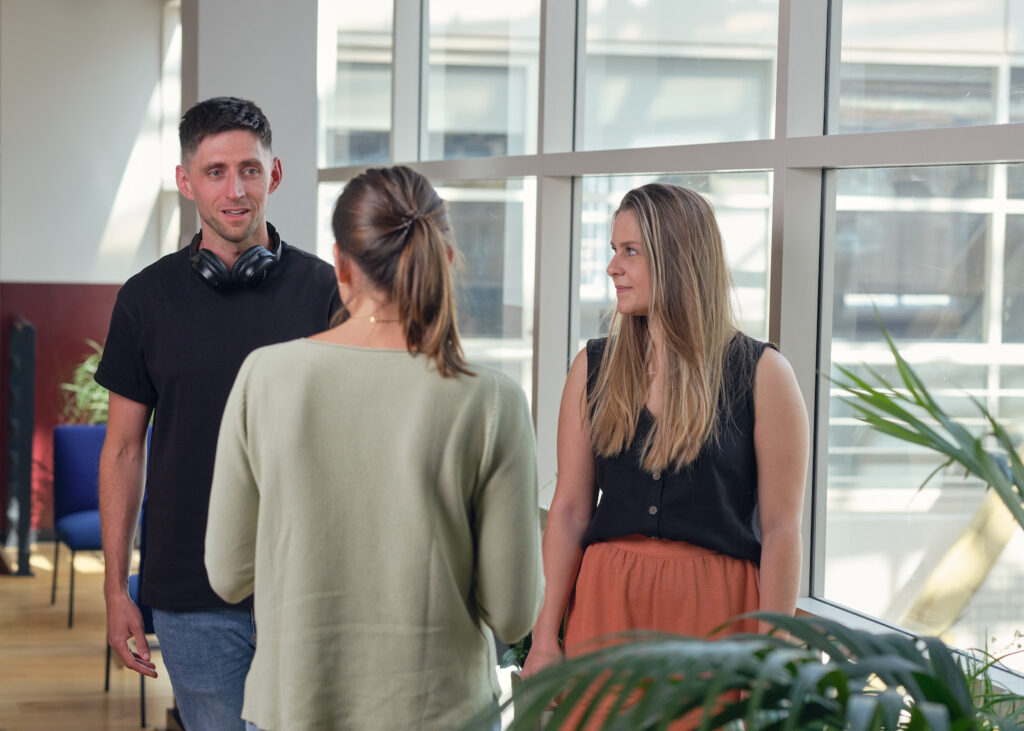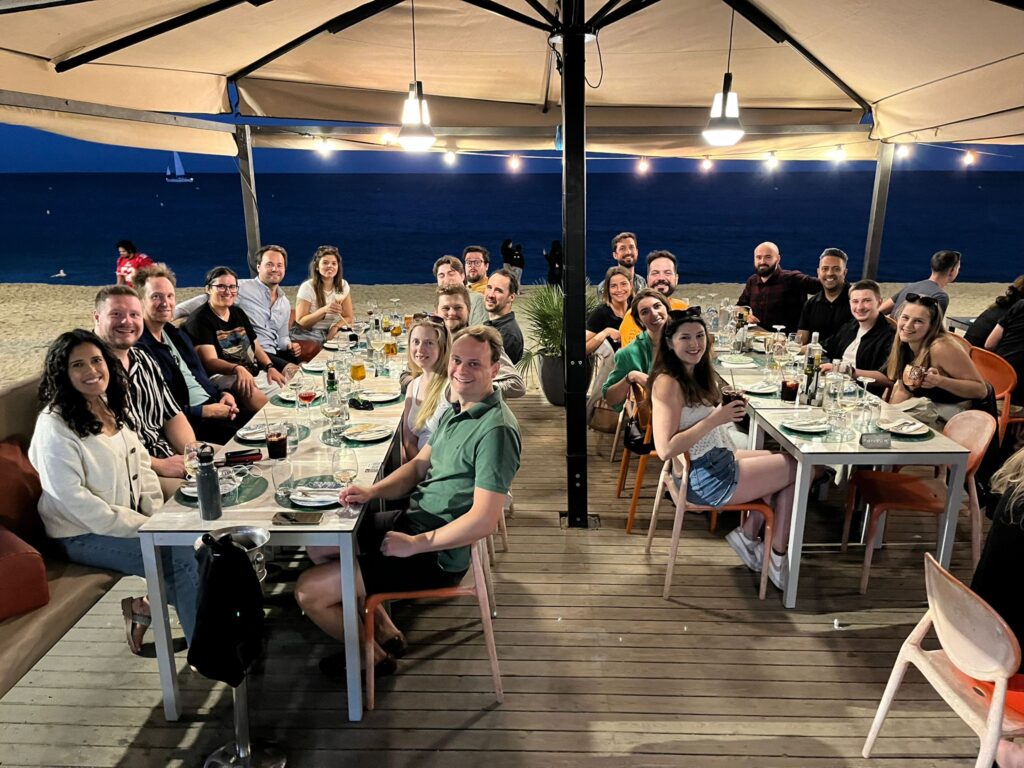Embracing Chaos: Key Insights from Awwwards Conference in Amsterdam
Earlier this year, the TWK team attended the annual Awwwards Conference in Amsterdam. This was an exciting opportunity to hear from some of the most creative minds in the digital design space about a range of interesting topics and web design trends.
This year’s theme was all about ‘embracing chaos’ and the role of design in shaping a more inclusive, sustainable, and innovative digital world. As you might expect, there was plenty of talk about the role of AI too.
The conference provided some valuable time out for our team to reflect, network and find new sources of inspiration. As web design experts, we’re really passionate about the power of the web to make impactful connections with audiences, so events like these are a great way to explore fresh perspectives and new possibilities. I’m already looking forward to next year!
In the meantime, here are five key takeaways from the event and the speakers worth following:
Embrace ambiguity and uncertainty in web design.
Alicia Shao is a futurist – someone who studies and analyses current trends, technologies, social changes, and other factors to make educated predictions about the future. In her talk she provided valuable insights into the power of design to navigate a complex and uncertain future. A key part of this was to embrace what you’re unsure of and what different versions of the future could look like. To design for a range of potential futures, rather than relying on a single prediction of what you think might happen. This mindset allows our web design experts to explore diverse possibilities and identify opportunities for positive impact.
Understand and address conservatism.
Never heard of Snask? Me neither, but Freddie and Erik delivered one of the most entertaining and memorable talks from the event. They talked about how conservatism is a natural human response to fear and uncertainty, and that designers should not demonise conservatives, but rather try to understand their concerns and address them in a constructive way. At the end of the day, design can be a powerful tool for challenging the status quo. Designers can use empathy, storytelling, and prototyping to open people’s minds in a positive way, exciting them about new possibilities instead of eliciting a fear of change. This is a mindset that we fully embrace at The Web Kitchen, and one that we bring to all of our projects.
An excellent example of the power of design to inspire individuals to embrace change is our work on the Wavemaker Global website, where we created an immersive homepage experience that invites visitors to experience Wavemaker’s proposition – by being brave and positively provoking change for themselves.
Reframe failure as a source of growth.
Valerie Fuchs is a design researcher and advocate for transformative design. She emphasises the power of accepting failure as a valuable learning experience and driving force for innovation. For designers, this can take many forms, but at its core is to adopt a more positive and constructive attitude towards failure. It happens, and always will. The value comes in recognising its potential as a catalyst for innovation, learning, and personal growth. At TWK, this means really understanding our client’s feedback on our work and what’s driving it – ensuring changes go beyond design tastes, instead they focus on creating solutions that are just right for the client and the needs of their customers.
Don’t lose sight of those megatrends.
Jonas Lempa explored the key challenges and opportunities that designers will face in the coming years. Whether it’s emerging tech such as AI, evolving user expectations, or sustainability and social responsibility – these megatrends aren’t new and we’re exposed to them everyday. However, by understanding and adapting to these trends, designers can play a pivotal role in shaping a more sustainable and user-centred future.
AI’s not taking over…yet.
The charismatic Peter Smart from Fantasy closed the event by taking a look at the transformative potential of AI in shaping the future of design. There was talk of using AI as an ‘amplifier for design’ – AI is not replacing designers but rather augmenting their capabilities. AI tools can automate repetitive tasks, analyse large datasets, and aid with generating creative ideas, allowing designers to focus on higher-level strategic and conceptual work. We saw one of the first ever demos of new bots called synthetic humans – they can talk to each other to help clients learn about audiences, think through product concepts, and even generate new ideas. And a lot more. Exciting yet frightening! Fantasy has a number of other AI tools being built that I’d encourage you to take a look at too.
The event was a timely reminder of the power of design to shape our digital experiences and address global challenges. By ‘embracing chaos’, harnessing emerging technologies, and designing for social good, there’s a very real opportunity for the design community to continue to make a positive impact – something we’re certainly inspired by here at The Web Kitchen.













